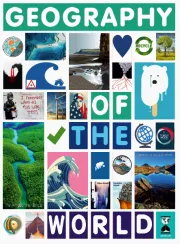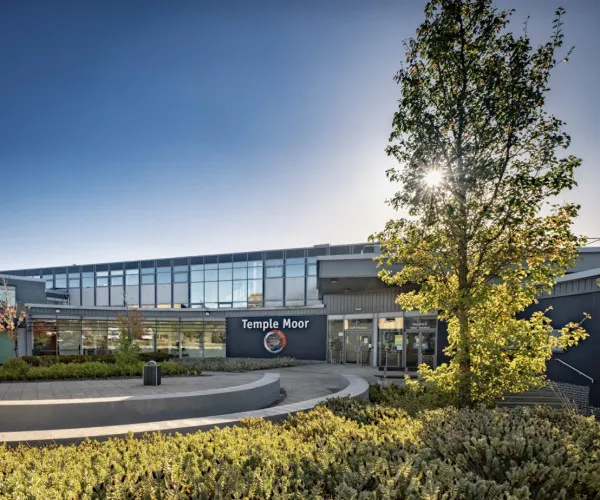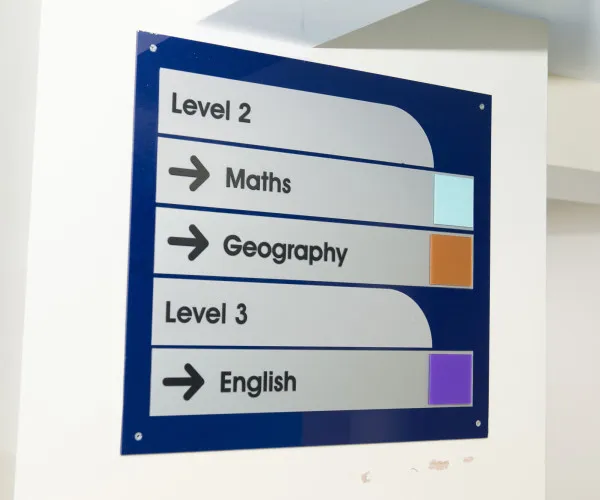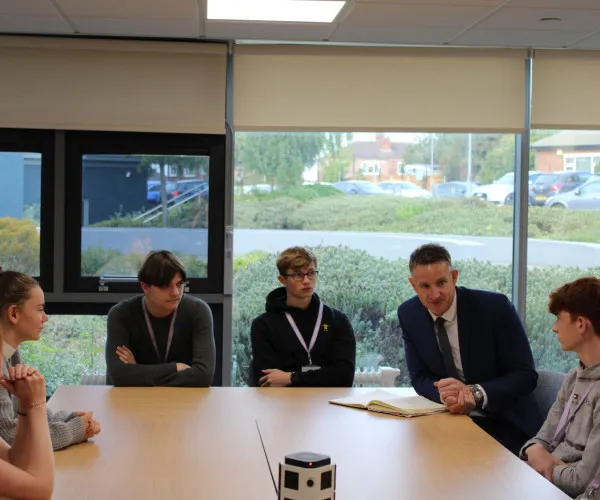- Curriculum
- Assessment
- Form Time
- British Values & Preventing Radicalisation
- Curriculum Subjects
- Art Curriculum
- Business Studies Curriculum
- Communication Curriculum
- Criminology Curriculum
- Design & Technology Curriculum
- English Curriculum
- Geography Curriculum
- Graphic Design Curriculum
- History Curriculum
- ICT Curriculum
- Law Curriculum
- Mathematics Curriculum
- Modern Foreign Languages Curriculum
- Performing Arts Curriculum
- Personal & Character Development
- Photography Curriculum
- Physical Education Curriculum
- Psychology Curriculum
- Read to Succeed
- Religious Education Curriculum
- Science Curriculum
- Sociology Curriculum
- Learning Qualities & Values
- The Options Process
- Supported Study and Revision
Geography Curriculum
 Subject aim
Subject aim
Students who study Geography at Temple Moor develop their knowledge and understanding of how the world is shaped by both natural and human processes and recognise their current and future role within society.
Details about curriculum structure
Students study Key Stage 3 Geography over 3 years for 4 hours per fortnight. Key Stage 4 Geography is taught as an option over two years, as is Key Stage 5 A-level Geography.
What will students study?
Key Stage 3
Year 7
Students start with the topic ‘Introduction to Geography’. Students develop their knowledge of human and physical features for various regions around the world, comparing the similarities and differences between each. This is supported through the development of competencies relating to atlas reading. Students also begin to develop their geographical skills in Year 7 from grid references to scale; competencies that are embedded in all subsequent topics to further develop these skills. The next topic, ‘Fantastic Places’, focuses on specific areas of the world which are unique. Students investigate each location in depth looking at the various human and physical features, the impact of human activity at each location as well as the various stakeholders who are affected by the use of each. Students also study current and prominent issues such as climate change and habitat destruction, studying both the physical and human causes, evaluating the severity of the effects as well as whether mitigation or adaptation is the best strategy in dealing with the issue. The final unit studied provides students with the chance to develop their Geographical investigative skills in conducting a short study. This allows students to collect their own primary data and develop their data presentation techniques.
Year 8
Students will study climatic hazards including the causes, effects, response and management of tropical storms, tornadoes, drought and forest fires. Students will judge how successful the response to hazards, such as Super Storm Sandy, were and will be able to offer alternatives. Other topics at Year 8 include weather and climate, with students developing an understanding of the water cycle and the weather systems which create the UK’s climate. Students also study the topic Globalisation which looks at where our goods are manufactured as well as the positive and negative impacts Transnational Corporations have in Low Income Countries.
Year 9
Students develop their knowledge and competencies further in making the links between the effects of tectonic hazards and the short-term and long-term responses, as well as how management of these hazards reduce the risk to humans. Students will also be able to independently analyse resources and use these to justify their decision in solving Geographical issues. Students continue to study current and prominent case studies and focus on the role they will have on these in the future such as plastic recycling and waste management. The final topic requires students to conduct a fieldwork investigation which includes collecting primary and secondary data, using a range of suitable presentation techniques, and analysing the data to reach a sound conclusion.
Key Stage 4
Paper 1 is the physical element of the specification including tectonic hazards, climatic hazards, coastal landscapes and glacial landscapes. Students develop their knowledge of the physical processes operating within each topic, as well as the effects these processes have. Students are then able to assess how different stakeholders are affected and present a convincing argument for the best sustainable strategies when trying to reduce these effects. Paper 2 is the human element of the specification. This gives students the opportunity to develop knowledge in areas such the changing economic world and urban issues/challenges. For each topic, students will analyse the current and future challenges these areas face and the need for sustainable management.
Key Geographical and numerical competencies have been embedded throughout the delivery of both physical and human units, to provide frequent opportunities for students to further develop these skills.
Students also collect the primary data for their fieldwork investigations (one human and one physical) during the summer term of Year 10. Through this, students will be able to apply knowledge and understanding to interpret, analyse and evaluate information and issues related to their enquiry.
Key Stage 5
Year 12 and Year 13
At Key Stage 5, students’ study AQA Geography A-level (7037) which comprises of two examinations and a piece of independent field work. Paper 1 focuses on Physical Geography; Coasts, Water and Carbon Cycles and Hazards, and these topics are studied in Year 12. In Year 13, students study Paper 2 topics which focus on: Changing Places, Global Systems and Global Governance, and Contemporary Urban Environments.
Each topic allows students to develop their knowledge and understanding of processes, concepts, environments, interactions and change at a variety of scales; as well as interpreting and analysing Geographical information and issues.
Students also conduct their own independent enquiry in Year 13. After initial teacher guidance on the suitability of their chosen investigation, students conduct all stages of an investigation from completing risk assessments to statistical analysis. Finally, students evaluate and reflect on their investigation showing an understanding of the wider context and ethical dimensions of their coursework.
Qualification which we offer at KS4 and KS5 (including links)
Enrichment and extra-curricular opportunities in the subject
Fieldwork is embedded into KS3 for students to practice data collection as well as the presentation and analysis of this data. This is developed further at both KS4 and KS5.
Additional reading is set at KS5 through the departmental purchase of Geography journals as well as the use of topical news stories in lessons.
The department also offers the club Eco Warriors weekly for Year 7 students, as part of the school’s enrichment program. This involves students conducting surveys of school the school site and staff to establish how environmentally friendly school is, before making recommendations to improve its sustainability.
Where could Geography ultimately take you?
Geography allows progression onto a wide range of degree courses in Higher Education. Careers directly linked with Geography include:
- Town and Country Planning Surveyor
- Travel Agent
- Transport Planner
- Environmental Agencies
- Teaching
Links to other sites which support study in this subject
Contact details to find out more about our curriculum
- Curriculum
- Assessment
- Form Time
- British Values & Preventing Radicalisation
- Curriculum Subjects
- Art Curriculum
- Business Studies Curriculum
- Communication Curriculum
- Criminology Curriculum
- Design & Technology Curriculum
- English Curriculum
- Geography Curriculum
- Graphic Design Curriculum
- History Curriculum
- ICT Curriculum
- Law Curriculum
- Mathematics Curriculum
- Modern Foreign Languages Curriculum
- Performing Arts Curriculum
- Personal & Character Development
- Photography Curriculum
- Physical Education Curriculum
- Psychology Curriculum
- Read to Succeed
- Religious Education Curriculum
- Science Curriculum
- Sociology Curriculum
- Learning Qualities & Values
- The Options Process
- Supported Study and Revision












